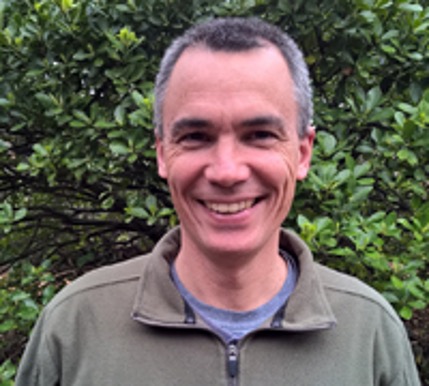The Jason Passioura Bursary: Promoting excellence in data acquisition and analysis
Applications close at 5pm on 30 April, 2024
Conditions of Bursary
1. Introduction
The Jason Passioura Bursary honours its namesake who passed away in 2022 after battling Glioblastoma Multiforme (GBM) brain cancer for 16 months.
Jason was a valued member of the NCEPH community who showed enthusiasm for his work and demonstrated exceptional commitment to data accuracy and ensuring that evidence-based research was undertaken with a focus on improving the quality of source data.
This Bursary recognises Jason’s outstanding contribution to research, in particular Jason’s achievements in using spatial analysis to inform suicide prevention research; work carried out at the National Centre for Epidemiology and Population Health (NCEPH) as a collaboration between GRAPHC (the National Centre for Geographic Resources & Analysis in Primary Health Care) and the Black Dog Institute.
2. Intent
The Jason Passioura Bursary will continue Jason’s legacy, by each year funding one or more students or researchers (academic Level A or B or professional staff) to undertake activity in pursuit of their research goals. The Bursary is intended to support the use of high-quality data in research. Given Jason’s commitment to spatial analyses especially regarding suicide prevention, applications that relate to these areas will be considered favourably.
Any activities that align with the intent of the bursary will be considered. Examples of activities include costs incurred for:
- data access or data acquisition
- software subscription
- training in spatial methods (course cost and travel)
- travel to a relevant conference
- relevant conference registration
3. Value
The value of the Bursary will be determined by the Director in consultation with the NCEPH Scholarships Committee, taking into account the available funding, and will be stipulated in the letter or offer. It is intended to be awarded annually over a period of 10 years, unless otherwise determined by the Director.
4. Eligibility
The Bursary will be awarded each year to a continuing domestic or international student (postgraduate or HDR or Honours) who is enrolled in a program of study at NCEPH;and/or an ECR (Level A or Level B); and/or a professional staff member with suitable experience working at NCEPH.
5. Application
Applicants should provide the following documents saved in one PDF:
- A completed application form
- A 1-page (maximum) covering letter outlining the proposed activity for which funding is sought, including the proposed travel itinerary and costings (please describe how any shortfall in funding will be covered)
- A 2-page (maximum) CV
6. Selection
Selection will be made on the basis of:
- The merit of the proposal in progressing research goals, which can include professional development. Describing multiple gains, such as meeting with collaborators before or after a conference, is highly regarded);
- Consistency of the proposal with the intent of the Jason Passioura Bursary;
- The benefit of the proposal to the individual; and
- The benefit of the proposal to NCEPH.
The Selection Committee shall be determined by the Director of the NCEPH. The Selection Committee will make a recommendation on the Award to the Director, NCEPH, once each year.
The Bursary shall not be awarded if, in the opinion of the Selection committee, there is no applicant of sufficient merit. NCEPH reserves the right to make no awards in a given year, to vary the number of awards or to make an award/s at other times in exceptional circumstances as approved by the Director NCEPH.
7. Concurrent holding of Awards
The Bursary can be held concurrently with other Awards.
8. Termination and payment
NCEPH may terminate a Bursary that has been awarded if the recipient is not making satisfactory progress. If the Bursary is terminated the selection committee shall take into account the information available and shall determine whether any repayment of the Bursary monies is payable.
9. Taxation
Recipients are responsible for seeking taxation advice regarding their own individual circumstances.
10. Publicity
It is anticipated that recipients may be requested to participate in publicity of the Bursary from time to time. The University may publicise the Award by publishing the names of the recipient.
On occasions, the recipient may be contacted by NCEPH to participate in activities including, but not limited to, an interview, a photograph, and a formal presentation ceremony. NCEPH may also request written responses from the recipient.
11. University regulations
The recipient is subject to The Australian National University Act 1991 as amended, and to the Statutes, Rules, Regulations and Resolutions of the University.
12. Disclaimer
The award does not carry any commitment by the University for future employment.
About Jason

Jason undertook his undergraduate studies BSc at ANU, graduating with honours in 1991.
A keen and enthusiastic photographer and bush walker, not forgetting, farmer, cross country skier and coffee connoisseur.
Jason was passionate about data integrity and accuracy. As a spatial scientist, Jason was acutely aware that spatial precision is essential for analyses and the importance of ensuring that the chosen analyses are appropriate for the quality of the data.
Jason was an integral part of the National Centre for Geographic Resources & Analysis in Primary Health Care (GRAPHC). GRAPHC promoted the use of geographical information systems (GIS) to inform locally relevant and equitable solutions for targeting health resources and services in Australia.
From 2016, Jason worked tirelessly with suicide data in support of the Black Dog Institute’s LifeSpan program.
“Jason was an instrumental collaborator supporting several leading-edge LifeSpan prevention initiatives. The Black Dog team benefited from Jason’s extensive expertise in geospatial mapping and attention to detail validating, analysing, and cleaning inaccurate data points.
His analytical skills allowed the team to gather accurate information, identify precise locations and gain insights into where interventions were needed. Jason’s critical eye supported the delivery of several prevention data reports, supporting numerous suicide prevention collaborative working groups helping them plan their suicide prevention strategy.
Rest in peace Jason Passioura”
Before joining GRAPHC in 2016, he worked in the Commonwealth Environment Department. As a highly skilled GIS Spatial Analyst with over 15 years of experience in demanding and changing environments, Jason (as part of teams) meticulously assessed data sets that helped determine official boundaries of Australia’s extensive network of new marine parks, thus leaving a separate enduring legacy.
Jason was passionate about data quality in all his endeavours and for the 6 years with GRAPHC his ability to produce high quality spatial data, spatial data analyses, mapping products and reports was a real asset. Jason was an engaging and pleasant work colleague and was popular with all who worked with him. His passion, skill, and commitment persisted to the end, and he is missed as a colleague and a friend.











